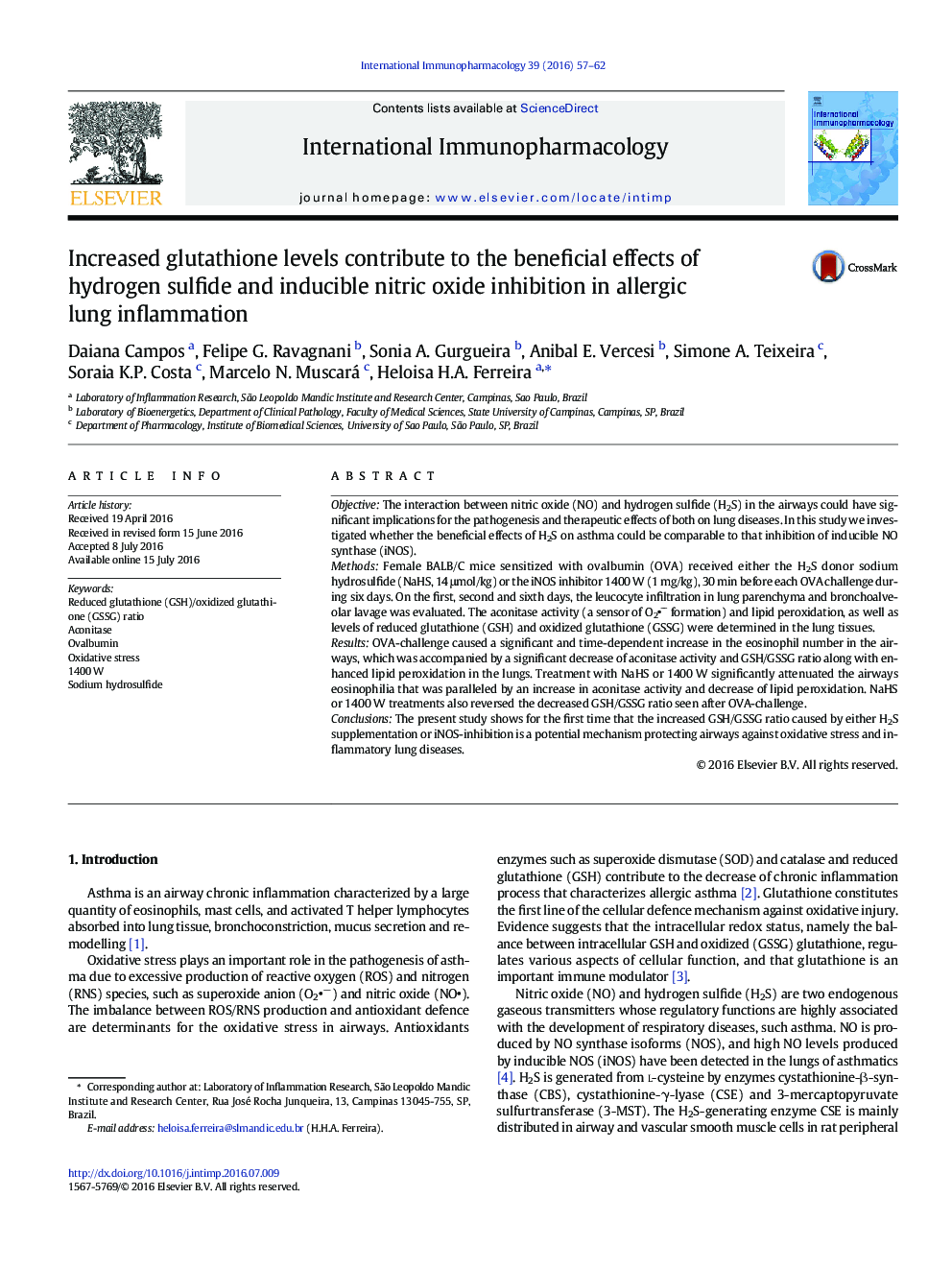| Article ID | Journal | Published Year | Pages | File Type |
|---|---|---|---|---|
| 2540191 | International Immunopharmacology | 2016 | 6 Pages |
•H2S donor or iNOS inhibitor has beneficial effects on allergic oxidative stress.•Treatments reduce lipid peroxidation and increase aconitase activity in the lung.•Treatments reversed the decreased GSH/GSSG ratio seen after OVA-challenge.•H2S supply or iNOS inhibition protects lungs against oxidative stress and inflammation.
ObjectiveThe interaction between nitric oxide (NO) and hydrogen sulfide (H2S) in the airways could have significant implications for the pathogenesis and therapeutic effects of both on lung diseases. In this study we investigated whether the beneficial effects of H2S on asthma could be comparable to that inhibition of inducible NO synthase (iNOS).MethodsFemale BALB/C mice sensitized with ovalbumin (OVA) received either the H2S donor sodium hydrosulfide (NaHS, 14 μmol/kg) or the iNOS inhibitor 1400 W (1 mg/kg), 30 min before each OVA challenge during six days. On the first, second and sixth days, the leucocyte infiltration in lung parenchyma and bronchoalveolar lavage was evaluated. The aconitase activity (a sensor of O2 formation) and lipid peroxidation, as well as levels of reduced glutathione (GSH) and oxidized glutathione (GSSG) were determined in the lung tissues.ResultsOVA-challenge caused a significant and time-dependent increase in the eosinophil number in the airways, which was accompanied by a significant decrease of aconitase activity and GSH/GSSG ratio along with enhanced lipid peroxidation in the lungs. Treatment with NaHS or 1400 W significantly attenuated the airways eosinophilia that was paralleled by an increase in aconitase activity and decrease of lipid peroxidation. NaHS or 1400 W treatments also reversed the decreased GSH/GSSG ratio seen after OVA-challenge.ConclusionsThe present study shows for the first time that the increased GSH/GSSG ratio caused by either H2S supplementation or iNOS-inhibition is a potential mechanism protecting airways against oxidative stress and inflammatory lung diseases.
